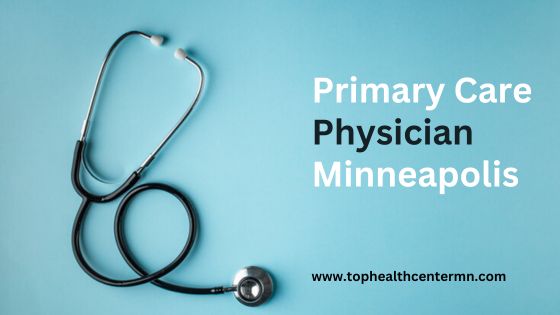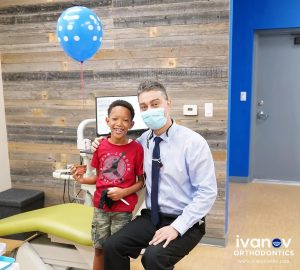How Primary Care Physicians in Minneapolis Affect the Health and Well-being of People
4 min read
Primary Care Physician Minneapolis
Primary care physicians (PCPs) are the foundation of every healthcare system, serving as patients’ first point of contact and delivering comprehensive, ongoing treatment. In Minneapolis, primary care physicians play an important role in promoting health, preventing disease, and managing chronic disorders. This article discusses the significance of primary care physicians Minneapolis, the services they provide, and how they affect the health and well-being of Minneapolis people.
The Role of Primary Care Physicians
Primary care physicians are medical practitioners who focus on general healthcare. They are educated to diagnose and treat a wide range of health problems, including acute illnesses and chronic ailments. Their role includes several aspects:
Preventive Care:
PCPs prioritize illness prevention and health promotion. They offer regular check-ups, vaccines, tests, and guidance on healthy lifestyle choices. They contribute to the prevention of major illnesses by detecting risk factors early on.
Diagnosis and Treatment:
Whether it’s a simple cold, a small injury, or a more serious ailment, PCPs can diagnose and treat a wide range of medical problems. They are capable of addressing both acute and chronic diseases.
Coordination of Care:
For patients requiring specialized care, PCPs coordinate with specialists to ensure continuity and comprehensiveness of treatment. They manage referrals and follow-up care, ensuring that patients receive the necessary attention from the appropriate healthcare providers.
Chronic Disease Management:
Chronic conditions such as diabetes, hypertension, and heart disease require ongoing management. PCPs develop and monitor treatment plans, adjust medications, and provide education to help patients manage their conditions effectively.
Services Offered by Primary Care Physicians
Primary care physicians in Minneapolis offer a wide array of services tailored to meet the diverse needs of the community. These services include:
Routine Check-Ups and Physicals:
Regular health assessments are crucial for maintaining good health and catching potential problems early. PCPs conduct comprehensive physical exams and health evaluations.
Vaccinations and Immunizations:
Immunizations are a key component of preventive care. PCPs administer vaccines to protect against infectious diseases such as influenza, measles, and pneumonia.
Health Screenings:
Early detection of diseases can significantly improve treatment outcomes. PCPs perform screenings for conditions such as cancer, diabetes, high cholesterol, and hypertension.
Mental Health Services:
Recognizing the importance of mental health, primary care physicians provide initial assessment, treatment, and referrals for conditions such as depression, anxiety, and stress-related disorders.
The Impact of Primary Care Physicians on Community Health
The presence of dedicated primary care physicians in Minneapolis has a profound impact on the health and well-being of the community. Their contributions include:
Improved Health Outcomes:
By focusing on preventive care and early detection, PCPs help reduce the incidence and severity of many diseases. Patients who have regular contact with a primary care physician tend to have better health outcomes and lower mortality rates.
Reduced Healthcare Costs:
Effective primary care can reduce the need for expensive emergency room visits and hospitalizations. By managing chronic conditions and preventing complications, PCPs help lower overall healthcare costs for individuals and the community.
Enhanced Access to Care:
Primary care physicians improve access to healthcare by providing a wide range of services under one roof. This comprehensive approach ensures that patients receive timely and appropriate care, reducing the barriers to accessing specialized services.
Continuity of Care:
The ongoing interaction between patients and their primary care providers promotes trust and continuity of care. This long-term relationship allows PCPs to better understand their patients’ medical histories, preferences, and social situations, resulting in more individualized and effective care.
Community Health Promotion:
Beyond individual care, primary care physicians play a crucial role in public health initiatives. They participate in community outreach programs, health education campaigns, and efforts to address social determinants of health, such as housing, nutrition, and access to services.
Challenges and Opportunities
While the role of primary care physicians is invaluable, some challenges need to be addressed to optimize their impact in Minneapolis:
Workforce Shortages:
Like many areas, Minneapolis faces a shortage of primary care physicians. Efforts to attract and retain PCPs, including offering competitive compensation, professional development opportunities, and supportive work environments, are crucial.
Burnout and Workload:
The demands on primary care physicians can be overwhelming, leading to burnout. Addressing workload issues, promoting work-life balance, and providing mental health support for healthcare providers are essential strategies.
Health Disparities:
Health disparities persist in many communities. Primary care physicians can play a pivotal role in addressing these disparities by providing culturally competent care, advocating for policy changes, and collaborating with community organizations.
Integration of Technology:
Leveraging technology, such as electronic health records (EHRs) and telemedicine, can enhance the efficiency and effectiveness of primary care. Ensuring that PCPs have access to and are trained in using these technologies is vital.
Patient Education:
Empowering patients with knowledge about their health and encouraging active participation in their care are key components of effective primary care. Primary care physicians should continue to emphasize patient education and engagement.
Conclusion
Primary care physicians in Minneapolis are essential to the community’s health and vibrancy. Their complete, ongoing, and patient-centered approach to healthcare ensures that people receive the preventive care, treatment, and assistance they require to live healthy lives. Primary care physicians make substantial contributions to the Minneapolis community’s general well-being by addressing both individual health needs and broader public health issues.
Investing in primary care, supporting the primary care workforce, and encouraging the adoption of innovative techniques are all critical steps toward increasing the effect of primary care physicians. As the healthcare landscape evolves, primary care physicians will continue to play an important role in creating a healthier, more resilient Minneapolis community.




